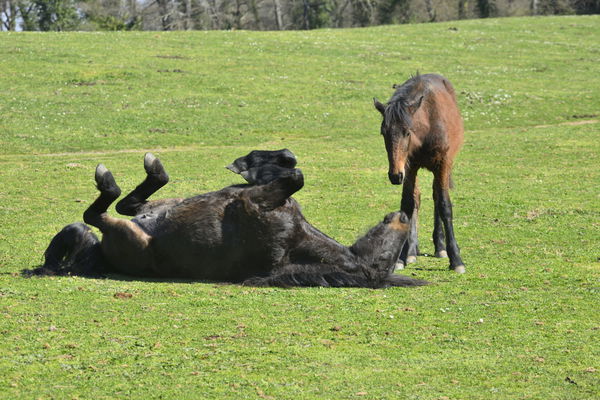

The smoke and haze from the wildfires devastating Canadian forests are expected to continue enveloping the Northeast, the Ohio Valley, and the Mid-Atlantic, affecting buildings and residents. With morning arriving on June 9th, there is hope that the smoke plumes will dissipate. However, the city has already witnessed one of its worst air quality index scores, reaching a staggering 484 out of 500. This dire situation has led to the cancellation of outdoor events and the distribution of high-quality masks.
The well-being of horses is now a concern as particulate levels exceed the safety threshold of 150. Owners are advised to limit riding and exercise until the smoke clears and air quality improves. As New York battles hazardous air quality, Ramapo equestrian center raises crucial questions about the health of horses. Will they be safe amidst these conditions?
ADVERTISEMENT
Article continues below this ad
Equestrian safety compromised as wildfires choke air quality
“As of yesterday evening, New York ranked No. 1 worldwide among cities with the worst air quality,” stated the Washington Post report. Air quality alerts remain in effect in major cities like D.C. and New York. A Penn State Meteorology graduate tweeted on June 7, 2023, sharing their experience: “Smoke from the Canadian wildfires over Ramapo Equestrian Center in southern New York casts an eerie orange glow.”
Smoke from the Canadian wildfires over Ramapo Equestrian Center in southern New York casts an eerie orange glow. I’ve never seen anything like this in my life before. You can smell and taste the smoke as soon as you walk outside. Stay safe everyone. #NYwx pic.twitter.com/BRyQzuToB6
— Dana Osgood (@danaosgoodwx) June 7, 2023
She also said, “I’ve never seen anything like this in my life before. You can smell and taste the smoke as soon as you walk outside. Stay safe everyone.” The severity of the situation has led to the issuance of multiple “Code Red” air quality alerts. Wildfire smoke and pollution can have adverse effects on the respiratory health of horses.
Horses’ respiratory health at risk from wildfire smoke
Catastrophic environmental events, such as wildfires, have far-reaching implications on air quality and horses’ respiratory well-being, making them valuable indicators of wildfire and air pollution impacts. According to Professor Kent E. Pinkerton from the UC Davis School of Veterinary Medicine, horses possess natural defense mechanisms to expel pollutants. He explains, “If the particles are depositing in the airways, then it only takes about 24 hours for clearance of those particles in the airways.”

ADVERTISEMENT
Article continues below this ad
However, when particles are smaller and reach the deep lung, the retention time increases significantly. Pinkerton adds, “The half-life of those particles for most species will be about 90 days. It’s a long retention time when particles are so small and get that deep into the lungs.” The road to recovery for horses exposed to smoke can vary. Horses with mild exposure may require two to four weeks for full recovery, while more severe cases leading to chronic respiratory conditions, like equine asthma, may take months. Furthermore, smoke exposure can have long-term effects on the immune system, which might not manifest immediately.
ADVERTISEMENT
Article continues below this ad
It is crucial to keep the horses hydrated and maintain moisture in their airways by frequently changing water. To ensure the well-being of horses, diligent daily assessment and improvement of air quality both inside and outside the barn are essential. Factors such as ventilation, exercise, feeding, bedding, and barn management should be carefully evaluated to address any issues and promote easier breathing for horses.
Watch This Story: Top 10 Moments of Olympic Sporting Spirit
ADVERTISEMENT
ADVERTISEMENT
ADVERTISEMENT
ADVERTISEMENT

